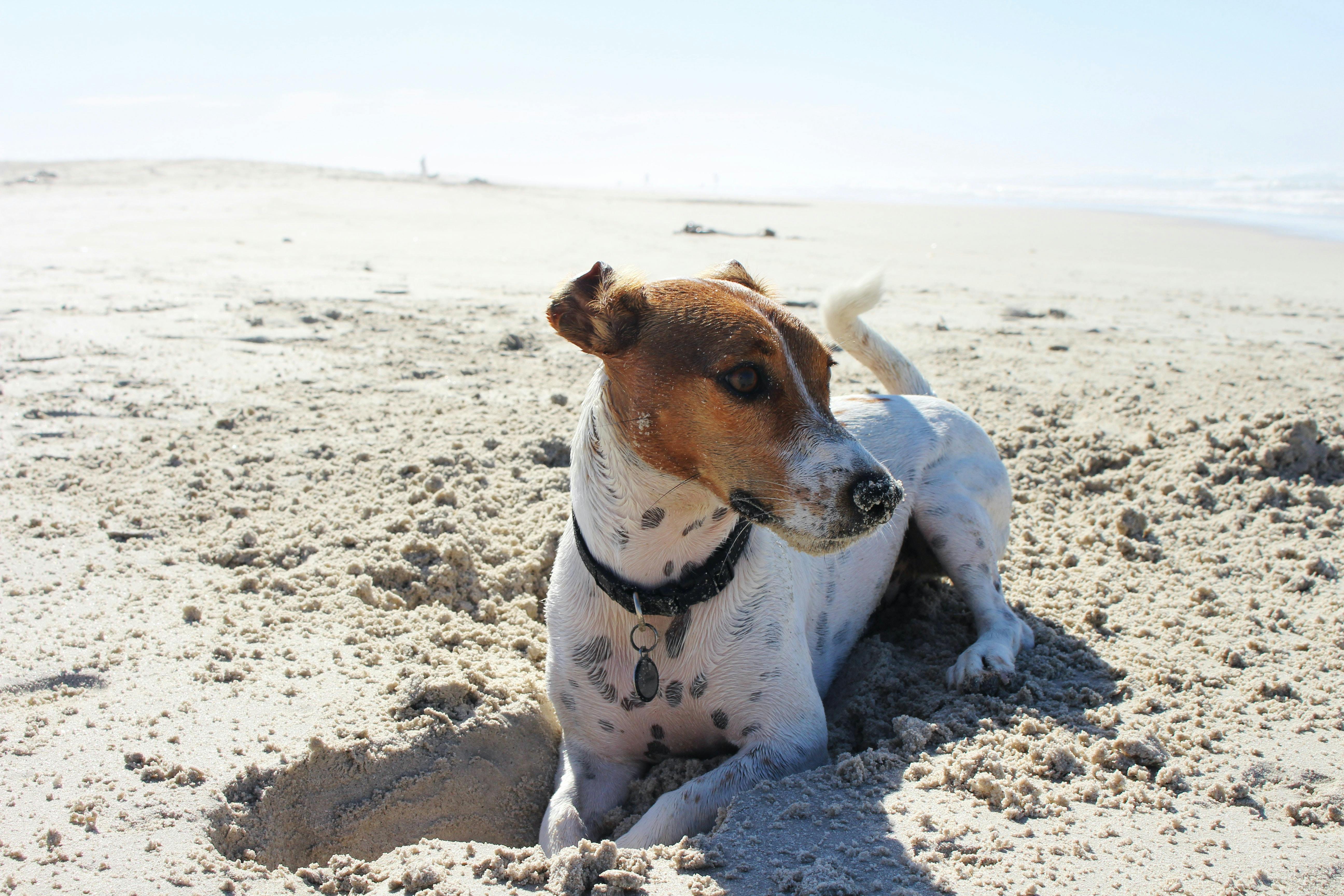
Written by Adam Lee-Smith
Veterinary reviewed by:
Published: 03/09/2021, edited: 10/25/2022
Overview
With spring on its way and summer around the corner, now's the time to start thinking about your next great beach adventure with your pupperino. There's lots to consider before your next outing, from what to bring to the best time of day to visit. But how should you prepare for sun, sea, and sand with Snoopy in tow? Check out this list of 7 new dog beach etiquettes you should know about today!
Pay a visit to the vet first
Before hopping in your car for your next beach road trip, consider taking your pup to the vet first. While your woofer will undoubtedly love the beach, there are plenty of parasites and diseases Fido could potentially pick up while you're away.
Your vet will be able to tell you if your dog has up-to-date rabies vaccinations and give you a tag to prove your pup is safe to travel. You should also ensure your mutt has had flea treatments, so they don't pick up any parasitic hitchhikers during your beach adventure. Have your vet check your pup's microchip, just in case they wander off or get lost.
Check the rules
There are hundreds of dog-friendly beaches across the US; however, many have specific rules and regulations you and Scoob will need to follow. Many beaches have strict rules on whether your dog can enter the water, they're allowed off-leash, where exactly the dog beach ends, and much more.
To avoid any angry confrontations or fines from local officials, check the specific rules for each beach so you don't get any nasty surprises. You can also find information about individual beaches on Wag!'s beach guides.
Clean up after your pup
One of the most important etiquettes to consider is leaving no foot or pawprint behind when visiting one of America's beautiful beaches. That means any time your pup goes potty, you should always pick it up. Many beaches also have strict rules on cleaning up after your woofer. You should also avoid throwing any toys in rough waters, and don't let your pup bury anything in the sand to keep the sea and sand pristine for future pet parents and their fur-babies.
Bring the essentials
You'll want to ensure you bring along everything you need for a successful beach day with your canine compadre. A portable water bowl, some tasty treats, doggy bags, and a leash are all important items. But there are plenty of other essentials you won't want to miss. Ample shade for your pup, their favorite toys, and vaccination records are all key items for a trip with no hiccups. Here's a list of the essentials to consider bringing on your next beach trip:
- Portable water bowl
- Treats/food
- Doggy bags
- Leash and collar
- An umbrella for shade
- Vaccination records
- ID tag
- A waterproof dog bed
- Dog toys
- A first aid kit for dogs
- Canine sunscreen
- A doggy life vest
Consider the time of day
Depending on the local climate and time of year, it's wise to think about the best time of day to go to the beach. Generally, the sun is at its strongest between 10 am and 4 pm, which you should avoid if it's a scorching day. Dogs can be prone to sunstroke, and hot sand can easily burn the sensitive pads on their paws.
You should avoid taking your dog to the beach during the hottest part of the day if it's warm out, and aim for an early morning or late afternoon adventure. Some breeds also handle hot weather better than others. For example, brachycephalic breeds tend to be worse off in hot weather. If you do happen to find yourself on the beach with your dog on a hot day, provide plenty of shade, canine sunscreen, and fresh water.
Comb the beach to ensure its safe
Some beaches are cleaner than others, and you can never guarantee what's lurking just below the sand. Before letting your four-legged friend frolic on the beach, you might want to do a quick comb to ensure there's nothing dangerous. Broken glass, old food, and sharp shells are common occurrences on beaches and could injure your mutt or leave them with an upset stomach. Do a quick scan when you first arrive to ensure the beach is clean enough for your canine.
Give your doggo a bath when you get home
One piece of etiquette some pet parents might not think of is to give their doggo a bath when they return home. Not only will a bath stop your mucky pup from traipsing sand throughout your home, but it'll also stop saltwater and sand from irritating your pup's skin. Clean your pup's ears, too, so they don't develop an infection. The beach can be dangerous for doggos, so when bathing them, check them over in case they’ve picked up any bumps or scratches.
Comments (0)
Leave a comment
Related articles
About Wag!
© 2025 Wag Labs, Inc. All rights reserved.
About Wag!
© 2025 Wag Labs, Inc. All rights reserved.
Security
© 2025 Wag Labs, Inc. All rights reserved.